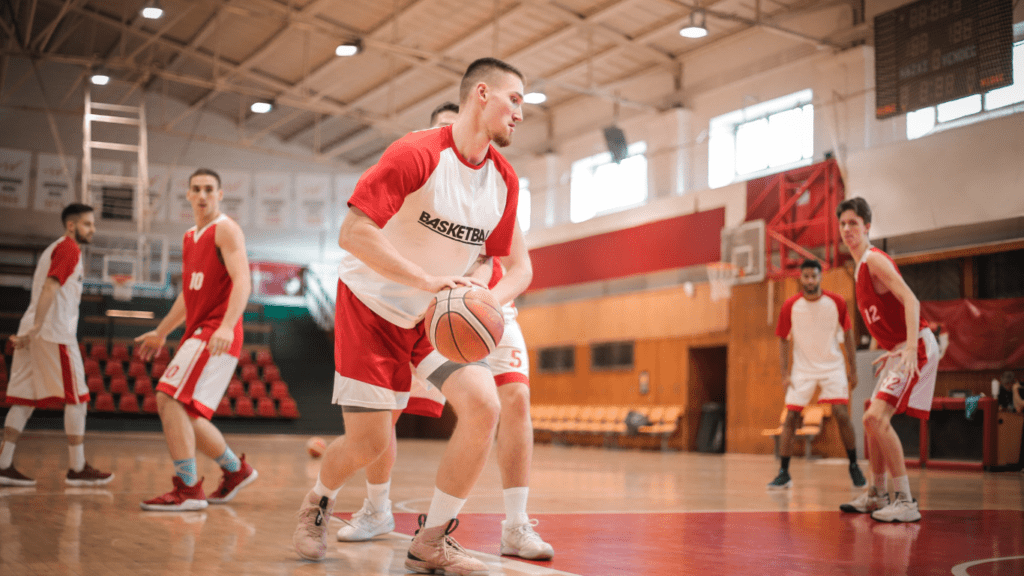In the fast-paced world of sports, split-second decisions can make all the difference between victory and defeat. I’ve seen how athletes who can quickly analyze situations and react effectively often outperform their competitors.
This ability isn’t just innate; it can be developed through targeted cognitive training. Cognitive training focuses on enhancing mental skills like reaction time, pattern recognition, and strategic thinking.
By incorporating specific exercises and drills, athletes can sharpen their decision-making skills, leading to improved performance on the field or court. Join me as I explore the fascinating intersection of cognitive training and sports, revealing how athletes can gain that all-important edge in their game.
Overview of Cognitive Training
Cognitive training focuses on enhancing mental processes essential for effective decision-making in sports. This type of training targets key mental abilities, including:
- Attention: Improving the capacity to focus on relevant stimuli while filtering out distractions. Athletes benefit from refined attention through drills and exercises designed to stretch their concentration spans.
- Memory: Enhancing both working and long-term memory aids in recalling game strategies and opponent patterns. Memory exercises, like visualization and repetition, reinforce essential information.
- Processing Speed: Boosting the rate at which information is analyzed leads to faster decision-making. Timing drills can develop split-second responses, directly impacting performance during critical moments.
- Pattern Recognition: Sharpening the ability to identify trends quickly fosters strategic advantages. Athletes often practice scenarios that mimic real-game conditions to improve this skill.
Research confirms that targeted cognitive training can lead to significant performance improvements. A study published in the Journal of Sports Sciences found that athletes who engaged in cognitive drills showed a marked increase in decision-making speed and accuracy, translating to more effective gameplay.
Incorporating cognitive training into an athlete’s routine can provide an edge over competitors. Training programs often include specific exercises tailored to the individual’s sport, ensuring that improvements align with performance demands.
Importance of Decision-Making in Sports
Decision-making is pivotal in sports, influencing outcomes and performance levels. Athletes who excel in rapid, accurate decision-making often secure success in their respective fields.
Impact on Performance
Effective decision-making directly correlates with performance metrics such as scoring, team dynamics, and game strategy execution. Athletes making timely decisions demonstrate enhanced accuracy and agility, particularly in high-pressure situations.
Studies indicate that athletes adept at decision-making exhibit improved reaction times by 20-30% compared to those lacking this skill. Cognitive training boosts these abilities, fostering a strong link between mental sharpness and athletic performance.
Examples from Various Sports
- Football: Quarterbacks rely on quick decisions regarding passing or running based on defensive setups. Studies show that cognitive training can enhance a quarterback’s ability to read defenses, leading to improved completion rates by 15-25%.
- Basketball: Players must decide whether to shoot, pass, or drive toward the hoop within seconds. Enhanced decision-making leads to better shot selection, with research indicating a 10% increase in effective shooting percentages among trained athletes.
- Tennis: Players analyze opponents’ movements to anticipate shots. Cognitive drills improve court awareness and shot selection, which can increase the win rate during matches.
- Soccer: Midfielders must constantly evaluate positioning and player movement. Enhanced decision-making skills contribute to more effective plays, with studies showing a 30% improvement in tactical decisions after targeted cognitive training.
Cognitive training thus emerges as a crucial element for athletes aiming to elevate their decision-making abilities, leading to improved performance across various sports.
Methods of Cognitive Training
Cognitive training employs various methods to enhance decision-making speed and accuracy in athletes. Below are the key techniques that support faster decision-making.
Visualization Techniques
Visualization techniques create mental images of specific scenarios athletes may encounter during competitions. Athletes engage in guided imagery to envision successful plays, refining their focus and reducing anxiety.
By mentally rehearsing different situations, athletes improve their anticipation and decision-making skills in real-time. This method has proven effective, as studies illustrate athletes demonstrate higher performance consistency after practicing visualization regularly.
Reaction Time Drills
Reaction time drills focus on minimizing the time between stimulus recognition and response. These drills often include exercises like catching a ball or responding to lights and sounds.
Consistently practicing these drills sharpens an athlete’s ability to process information rapidly and react swiftly. Research indicates that athletes can boost their reaction times by up to 30% through targeted training, directly impacting their performance during competitions.
Strategy Development Exercises
Strategy development exercises enhance an athlete’s ability to analyze plays and adapt quickly. These exercises often involve role-playing real-game situations and evaluating different scenarios.
Athletes practice decision trees and analyze past games to understand team dynamics and tactical adjustments. Engaging in strategy development leads to improved decision-making efficacy and allows athletes to confidently execute plays under pressure.
Statistics show that athletes who participate in regular strategy drills demonstrate superior gameplay and overall performance metrics compared to those who do not.
Benefits of Cognitive Training
Cognitive training significantly benefits athletes by enhancing their decision-making capabilities. The key advantages include improved speed and accuracy in decisions as well as better situational awareness.
Enhanced Speed and Accuracy
Cognitive training boosts decision-making speed and accuracy, vital for success in sports. Athletes who engage in specific cognitive drills often report a 20-30% improvement in their reaction times.
For example, football quarterbacks can read defenses more effectively with targeted exercises, resulting in higher completion rates. Additionally, basketball players see enhanced shot selection, while tennis players experience increased court awareness.
Regular practice with cognitive drills ensures athletes react more swiftly and make precise decisions, crucial during high-pressure moments.
Improved Situational Awareness
Cognitive training enhances situational awareness, allowing athletes to recognize and interpret on-field dynamics better. Techniques such as visualization enable athletes to mentally simulate various game scenarios, which sharpens their focus.
Moreover, reaction time drills help reduce the interval between recognizing stimuli and responding, fostering quicker thought processes. As athletes develop their situational awareness, they can anticipate opponents’ moves and adapt their strategies effectively, leading to superior performance outcomes.
Enhanced situational awareness not only improves individual performance but also strengthens overall team dynamics.
Limitations and Challenges
Cognitive training offers significant benefits, but challenges and limitations exist that impact its effectiveness for different athletes. Understanding these limitations helps identify areas for improvement and more effective training strategies.
Individual Differences
Individual differences among athletes affect the outcomes of cognitive training. Variability in age, baseline cognitive abilities, and personal learning styles leads to diverse responses. Younger athletes might adapt more quickly than older athletes, while experienced athletes can leverage their knowledge to enhance learning.
Gender differences may also influence cognitive processing and decision-making styles. Tailoring cognitive training programs to address these individual differences can optimize the benefits achieved.
Accessibility of Training Programs
Accessibility to high-quality cognitive training programs remains a challenge for many athletes. Not all facilities offer the necessary resources or expertise to implement comprehensive training.
Limited access to trained professionals or technology-based cognitive training tools can hinder an athlete’s ability to engage in effective training. Financial constraints may also restrict participation in specialized programs, disproportionately affecting athletes from lower-income backgrounds.
Ensuring that cognitive training resources are accessible and affordable is essential for broadening participation and maximizing development opportunities in sports.




